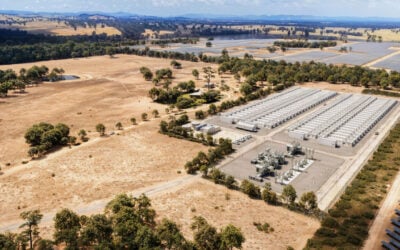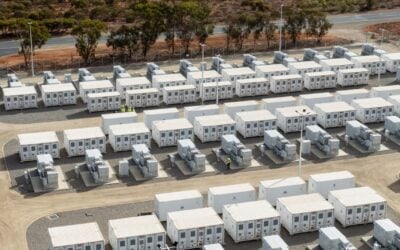Kaua’i Island Utility Cooperative serves around 33,000 customers. The AES DE project would constitute around 11% of their electricity supply. Image: wikimedia user: Grace808.
The latest step in Hawaii’s clean energy evolution will be the deployment of a 20MW, 5-hour duration battery energy storage system paired with 28MW of solar in Kaua’i, to match peak demand with generation.
The US state with the highest levels of solar penetration on its grid, Hawaii’s main electricity provider HECO (Hawaiian Electric Companies) recently revealed that it may be able to hit 100% renewable energy by 2040, five years ahead of schedule. Other projects on the islands to unite solar and storage in this endeavour include SolarCity-Tesla’s dispatchable 52MWh energy storage system at a 12MW solar farm and a 4-hour duration large-scale flywheel pilot/demonstration.
For the latest project, which remains subject to local and state regulatory approvals, local energy provider Kauaʻi Island Utility Cooperative (KIUC) has signed a power purchase agreement (PPA) with a subsidiary of AES Corporation, AES Distributed Energy (AES DE). Parent company AES has executed several large-scale energy storage project worldwide for utilities on its Advancion lithium-ion battery platform in countries including the UK and the Netherlands.
Located on the south shore of Kaua’i, KIUC’s president and chief executive officer was quoted as saying energy from the project would be priced at US$0.11 per kWh and would provide 11% of Kaua’i’s electric generation. It could also reduce the island’s fossil fuel consumption by more than 3.7 million gallons annually.
Try Premium for just $1
- Full premium access for the first month at only $1
- Converts to an annual rate after 30 days unless cancelled
- Cancel anytime during the trial period
Premium Benefits
- Expert industry analysis and interviews
- Digital access to PV Tech Power journal
- Exclusive event discounts
Or get the full Premium subscription right away
Or continue reading this article for free
“The project delivers power to the island’s electrical grid at significantly less than the current cost of oil-fired power and should help stabilize and even reduce electric rates to KIUC’s members,” David Bissell said.
“It is remarkable that we are able to obtain fixed pricing for dispatchable solar-based renewable energy, backed by a significant battery system, at about half the cost of what a basic direct-to-grid solar project cost a few years ago.”
AES DE will be the owner and operator of the plant, which if it gains regulatory approval will be online by late 2018. AES signed a multi-year agreement for Korean battery supplier LG Chem to provide the storage developer with 1GWh of lithium-ion battery capacity configured for the Advancion platform in late 2015, which one analyst estimated could be worth US$300 million.
Ribbon cutting at AES project in Holland. Image: AES.




